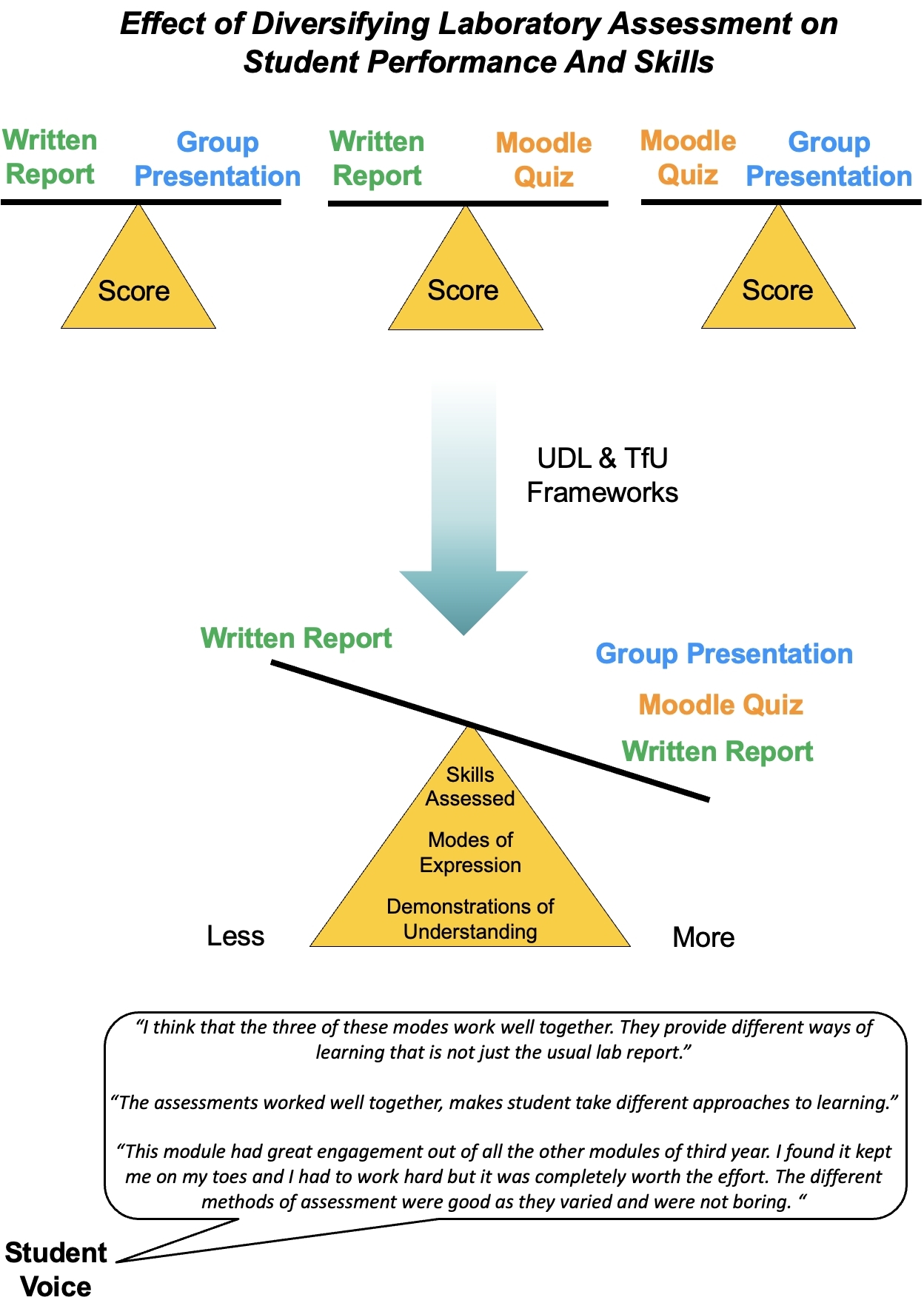Laboratory practicals in life science subjects at many undergraduate institutions are traditionally assessed by written reports which reflect disciplinary norms of documenting experimental activities. Over the last 20 years, assessment of scientific laboratory classes has continued to diversify, with the sole use of report or research paper writing style assessments becoming increasingly less ubiquitous. Such alternative assessments include but are not limited to student reflections on skills obtained, poster presentation sessions on laboratory experiments and skills, drafting of grant proposals based on data obtained in laboratory practicals and various survey instruments designed to evaluate experimental design capability. However, over-reliance on reports can potentially promote rote learning and evaluate a narrow set of competencies. A commonly reported drawback of report writing is students struggle with placing experimental data in a wider context and find writing introductions and discussions tedious and challenging, to the point that students often revert to copy and paste exercises to fill out their reports. In this study, we explored how multiple modes of laboratory assessments (a group presentation, an online quiz and a written report) might affect student perceptions of learned skills in a life science module at Dundalk Institute of Technology, Ireland.
For this study, we aimed to address the following specific research questions:
- In an undergraduate life science module that uses 3 different assessments (reports, online quizzes, group presentations), on average across a class, do students score higher in any of these assessment modes over another?
- Do students perceive that different assessments (reports, online quizzes, group presentations) promote awareness of, and engagement with, a broad range of practical competencies?
This was informed by universal design for learning (UDL) and teaching for understanding (TfU) frameworks. Anonymous surveys collected over 3 consecutive years (2020-2022) with 66 total students, evaluated whether this expanded portfolio of assessments promoted awareness of, and engagement with, a broader range of practical competencies. Interestingly, when student scores were compared across the assessments, there was no significant difference between any comparisons in any year (P>0.05, unpaired one-way ANOVA, Tukey test, n=29 for 2020, n=13 for 2021, n=24 for 2022). Survey data showed that aspects that influenced student preferences in assessment mode included time limitations, time investment, ability to practice new skills, links with lecture material and experience of assessment anxiety. In particular, presentations were highlighted as promoting collaboration and communication and the quiz as an effective means of diversifying assessment schedules. A key takeaway from students was that while reports were important, an over reliance on them was detrimental, as exemplified by one student “I think that the three of these modes work well together. They provide different ways of learning that is not just the usual lab report”, also summarized in Figure 1. This study suggests that undergraduate life science students can benefit significantly from a holistic assessment strategy that complements reports with performance-based approaches that incorporate broader competencies and allow for greater student engagement and expression in undergraduate modules.

